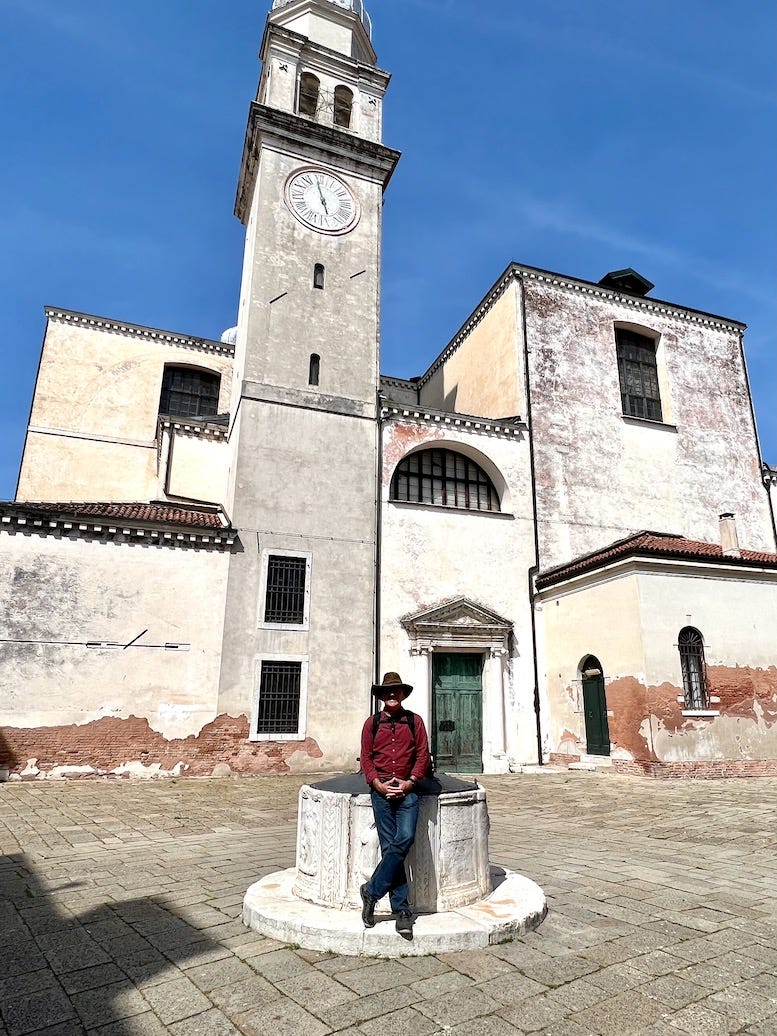Why Airbnb just added three huge new features
Airbnb responds to its massive success and high demand with smart applications of machine learning and surprisingly good customer service guarantees.
Airbnb just announced a host, so to speak, of new features that — let’s be real — are responses to the company’s overwhelming success in the temporary dwelling racket. (I talked to Airbnb co-founder and Chief Strategy Officer Nathan Blecharczyk yesterday from an Airbnb in Poreč, Croatia.)
Now that covid restrictions are ending, people are traveling with a vengeance. (No, really, they call it “revenge travel.”)
Airbnb also finds itself very much on the right side of history — people are working remotely, becoming digital nomads, taking workactions and enjoying bleisure travel, all of which drives guests to Airbnb.
I’ve been living internationally as a digital nomad for years (in fact, I wrote this newsletter at an outdoor cafe next to a canal in Venice.)
One of the major implications of this trend is that demand for longer-term stays is way, way up. The company says long-term stays have doubled between Q1 2019 and Q1 2022. Nearly half of all bookings now are for a week or more.
Airbnb responded to this trend with a feature announced today I couldn’t have predicted. It’s called Split Stays. Here’s how it works.
When you want to doing a long stay (say, a week or a month) in a specific location, Airbnb will show you the options as before. But now, in addition, they’ll show you options for the same total length of time, divided by two separate properties each of which is not available for the full duration, but combined will cover you for the full time. The company uses machine learning and humans in concert to pair properties with similar attributes of location, amenities, price, etc.
Airbnb launched Split Stays for a very simple reason: To create a new supply of options to meet huge new demand for longer-term stays.
Second, Airbnb today also announced something that’s akin to free insurance. Called AirCover, the company will now guarantee your reservation (they’ll find you a comparable or better booking if your host cancels within 30 days of your check-in or if you can’t check in for any reason). They’ll also find you another place or a refund if the host doesn’t supply what they advertised. And they have now have a 24-hour safety hotline you can call if you don’t feel safe.
And third, Airbnb is launching 56 new search categories, enabling you to narrow your home search to just “treehouses” or “historical homes,” homes with “chef’s kitchens” or grand pianos or windmills and many others, including my favorite: “OMG” homes, of which they have around 500. (My wife, Amira, says she’s always wanted a “chef’s kitchens” category. I’ve always wanted to live in a treehouse. Do they have both in the same house?)
This last feature will force me to re-write a section in my book, Gastronomad, because I have tips in that book — now obsolete — about how to search categories extensively using Google Photos.
Airbnb’s announcement today is best understood as a company being smart — human intelligence and machine learning — to respond to the position it finds itself in: The world is going mobile and nomadic, and Airbnb is by far the dominant brand that enables that. Everybody now wants what Airbnb offers — the chance to live anywhere in any kind of house for as long as you want.
These new features codify a better level of customer service, and enable people more options to find what they want in a new market characterized by massive demand.
Mike’s List of Brilliantly Bad Ideas
1. Finally, a car with a built-in pizza holder
Galpin Auto Sports loves 7-Eleven so much they tricked out a 2021 Ford Mustang with a 7-Eleven theme. The car, called the Model 7-Eleven, sports a pizza slice holder, plus a Big Gulp cup holder. The gearshift knob looks like a Slurpee. The car even has a custom air freshener that smells like 7-Eleven coffee.
2. Behold! A floating live-aboard tricycle
The BeTRITON trike is your typical solar-powered amphibious tricycle camper. You can ride it like a bike, drive it like a boat and it sleeps two. It’s solar-powered roof provides electricity for the air-conditioning and heating system, UPS charging, GPS and sound system.
3. Silicon Valley employees now get to sleep in ‘pods’
A startup called Brownstone Shared Housing is renting sleep pods to Silicon Valley workers in Palo Alto. The pods enable up to 14 people to share a single track house. All the space is shared except for the individual sleep pods. Each victim pays $800 per month. The pods are stacked two high, and each pod offers a fan, LED lights and a power outlet, plus a rod to hang your clothes on. A curtain provides visual privacy, but you can still hear people waking up in the middle of the night screaming because they work in a cubicle and sleep in a pod.
Mike’s List of Shameless Self Promotions
Welcome to the new world of business travel
In a remote-work world, a zero-trust revolution is necessary (From my Future of Work newsletter — subscribe here now)
Why rosé pairs with Provence







Great update on Airbnb features Mike! I think you are right, they are in the right place at the right time for growth.